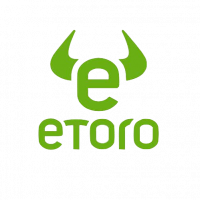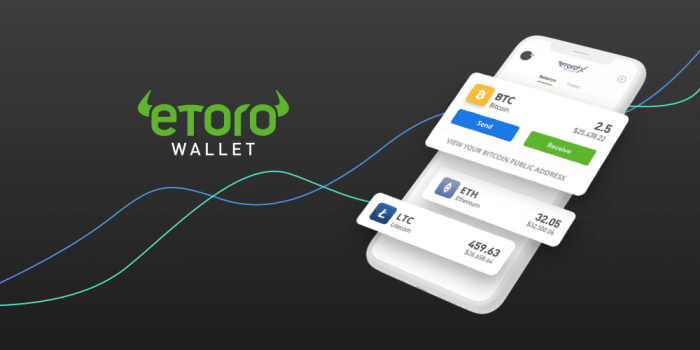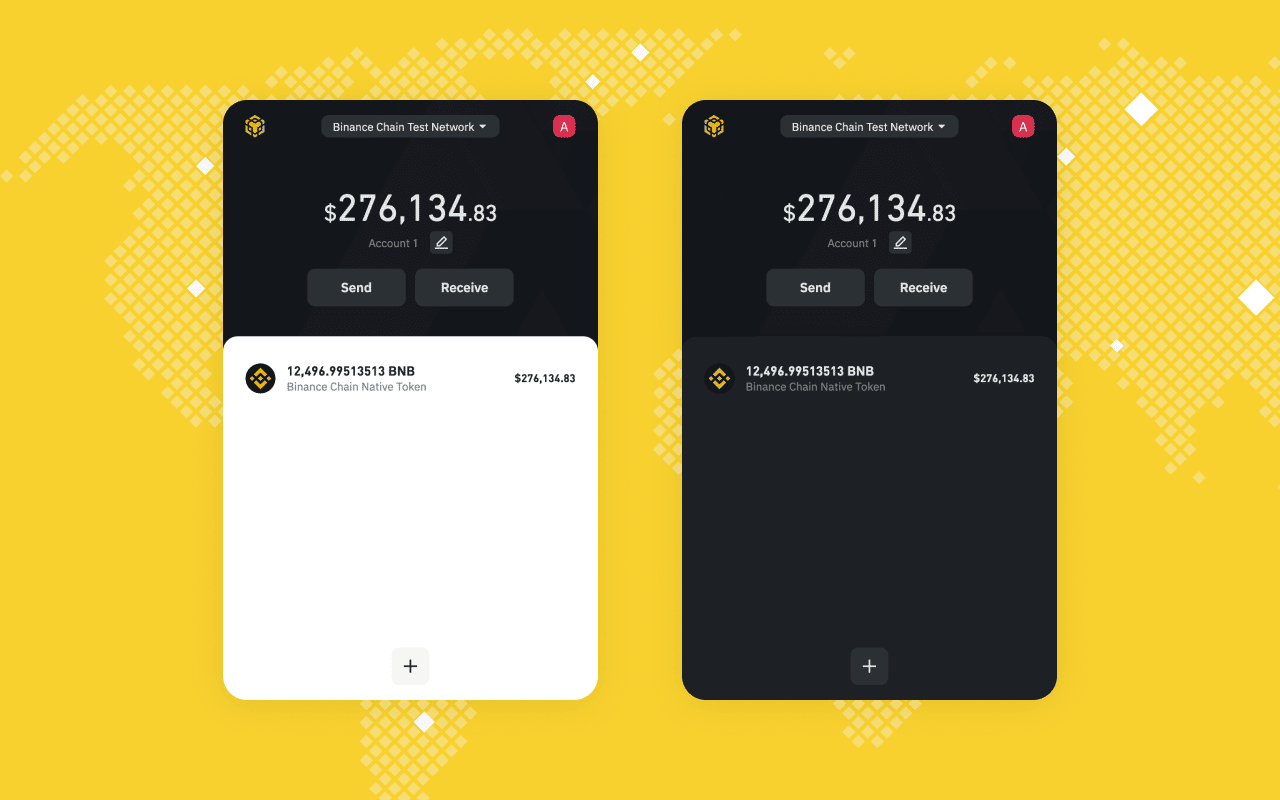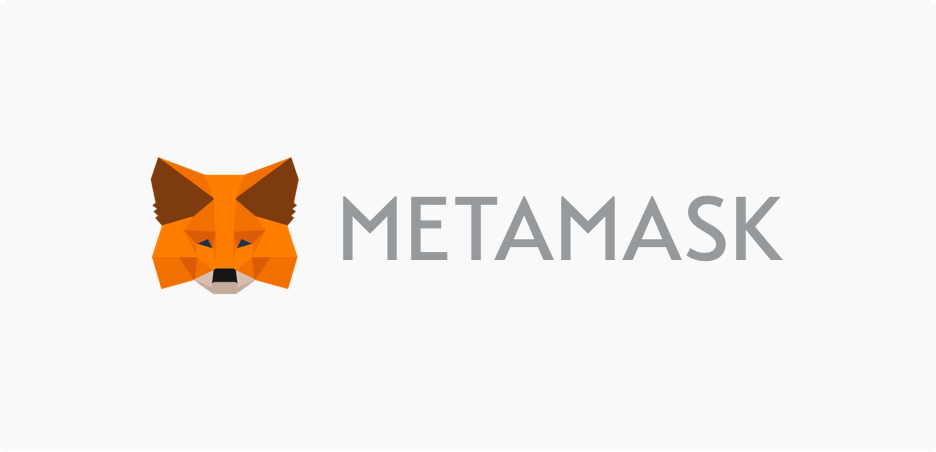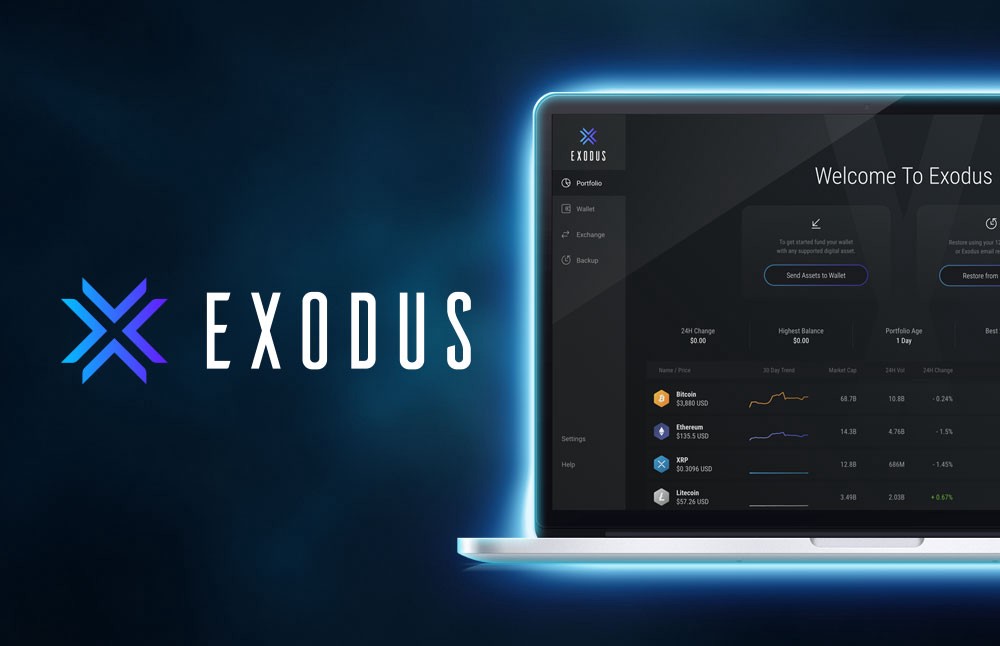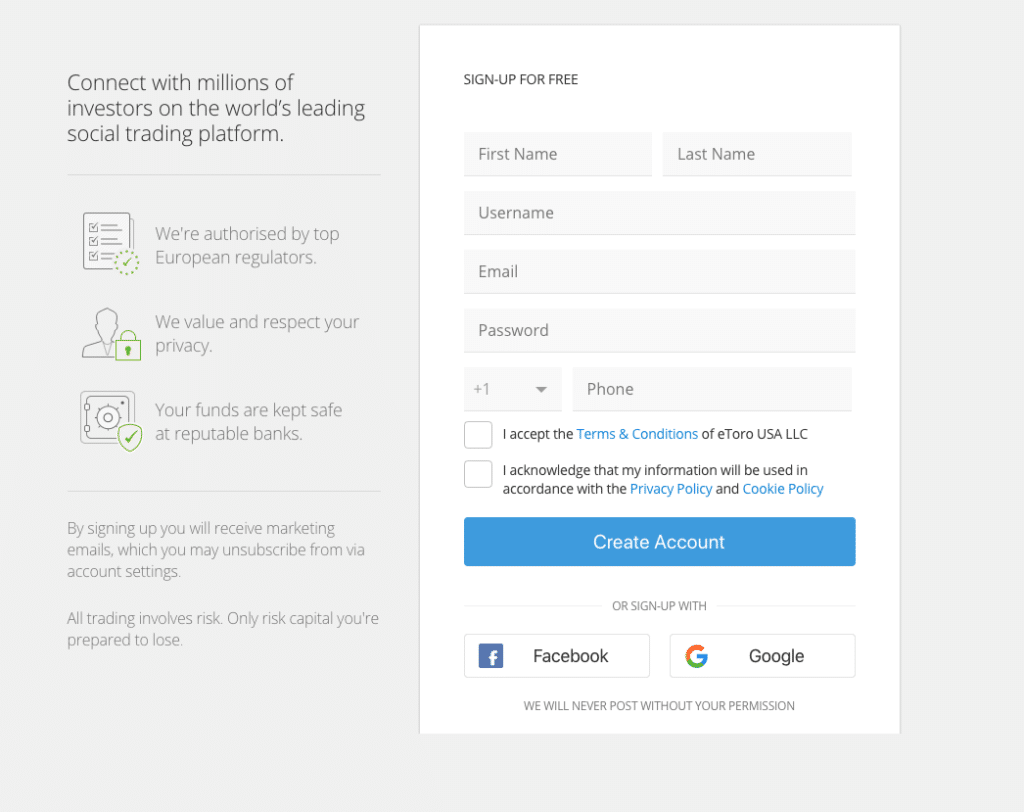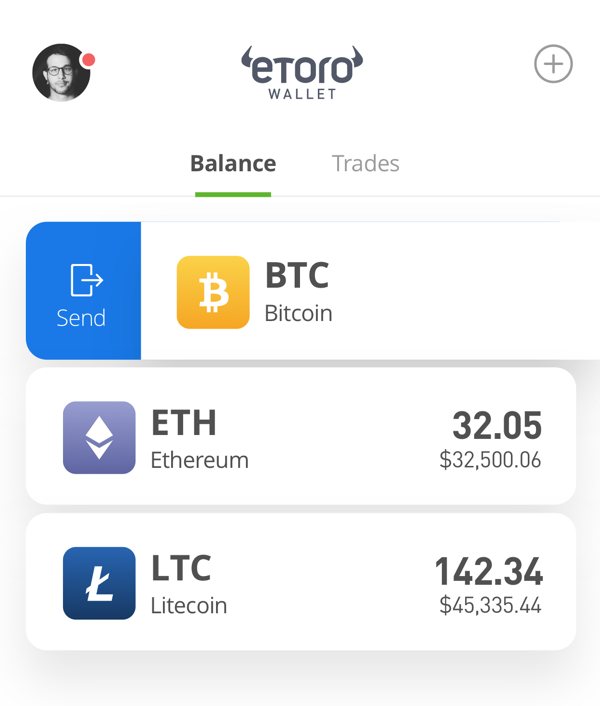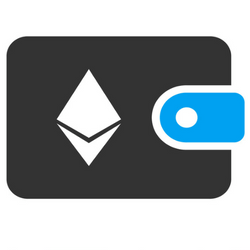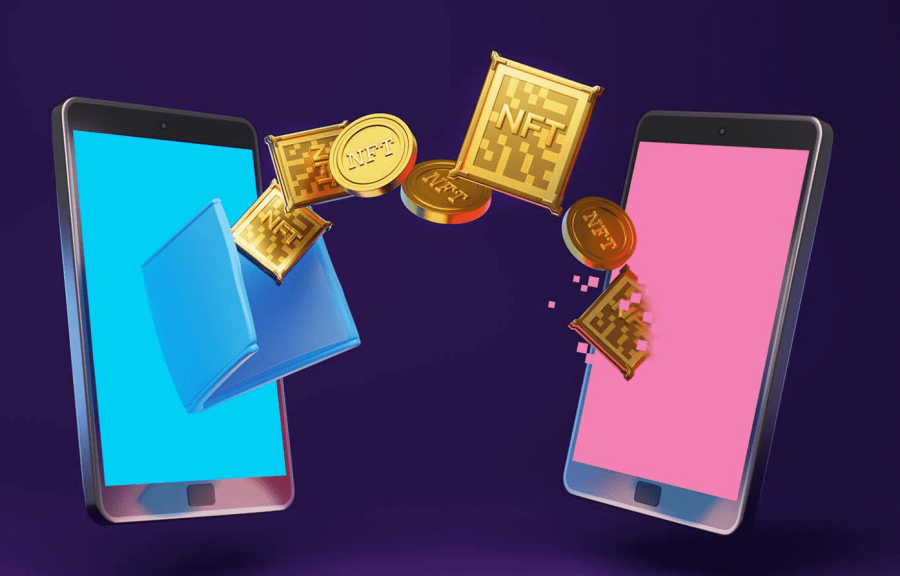Best Ethereum Wallet 2025 – Beginner’s Guide
In the dynamic world of cryptocurrency, Ethereum stands as a cornerstone, offering versatility and innovation. As its popularity grows, the need for reliable and secure Ethereum wallets becomes paramount. In this comprehensive guide, we delve into the best Ethereum wallets available, focusing on their unique features, security measures, and ease of use.
Best Ethereum Wallets – List
- eToro – the best Ethereum wallet for 2022
- Coinbase – excellent crypto wallet for beginners
- Binance – one of the best apps for Ethereum trading for beginners
- MetaMask – an excellent crypto wallet for Web3 applications
- Exodus – the world’s first multi-cryptocurrency desktop wallet
- Ledger – a hardware wallet renowned for its top-tier security
- Trezor – best hardware wallet for its blend of security and convenience
Best wallets for Ethereum reviewed
1. eToro – the best Ethereum wallet for 2025
eToro has emerged as the best Ethereum wallet for 2023, distinguishing itself through a combination of user-friendly features, robust security measures, and versatile functionality. Here are the key reasons why eToro stands out:
- User-Friendly Interface: eToro is designed with both beginners and experienced users in mind. Its intuitive interface simplifies the process of buying, selling, and storing Ethereum, making it accessible for users with varying levels of expertise in cryptocurrency.
- Social Trading Platform: Unique to eToro is its social trading feature, which allows users to follow and copy the trades of experienced investors. This community-driven approach not only fosters a learning environment but also enables newcomers to make informed decisions based on the strategies of seasoned traders.
- Robust Security Measures: Security is a top priority for eToro. It employs advanced security protocols, including two-factor authentication (2FA) and cold storage for the majority of funds, ensuring a high level of protection against hacking and fraud.
- Regulated and Trusted: eToro is regulated by several financial authorities, including the CySEC, FCA, and ASIC, providing users with an added layer of trust and compliance. This regulatory oversight ensures that eToro adheres to strict financial standards and practices.
- Multi-Asset Platform: Beyond Ethereum, eToro supports a wide range of cryptocurrencies, as well as stocks, commodities, and forex. This multi-asset approach allows users to diversify their portfolio from a single platform.
- Mobile App Convenience: eToro offers a comprehensive mobile app that allows users to manage their Ethereum and other investments on the go. The app maintains the same level of functionality and security as the desktop platform.
- Educational Resources: eToro provides an abundance of educational resources, including webinars, guides, and a dedicated trading academy. These resources are invaluable for users looking to deepen their understanding of Ethereum and the broader cryptocurrency market.
- Transparent Fee Structure: eToro’s fee structure is straightforward and competitive, with no hidden charges. This transparency is crucial for users to manage their investments effectively.
- Customer Support: eToro has a responsive and knowledgeable customer support team, which is essential for addressing any queries or concerns users might have, enhancing the overall user experience.
- Innovative Features: eToro constantly updates its platform with innovative features like CopyPortfolios, which are managed portfolios that bundle various assets, including Ethereum, under a predetermined market strategy.
In conclusion, eToro’s combination of ease of use, security, regulation, and additional features not only make it an excellent wallet for Ethereum but also a comprehensive platform for broader investment needs. Its focus on community, education, and innovation positions it as a leading choice for Ethereum storage and management in 2023.
67% of retail investor accounts lose money when trading CFDs with this provider. You should consider whether you can afford to take the high risk of losing your money.
Note: Only cryptocurrencies eToro customers in the United States will be able to trade on the platform will be Bitcoin, Bitcoin Cash, and Ethereum.
2. Coinbase – excellent crypto wallet for beginners
Currently, Coinbase is one of the biggest crypto exchanges in the market and has over 56 million registered users. The platform caters to people with little or no experience buying, selling, or storing digital tokens. Many users will keep their crypto investments in the main Coinbase web wallet, packed with security features.
Coinbase stands out as an excellent cryptocurrency wallet, particularly for Ethereum and for beginners in the crypto space. Its appeal lies in several key areas that make it a top choice for those new to digital currencies:
- User-Friendly Interface: One of Coinbase’s most significant advantages is its clean, intuitive interface. The platform is designed to be straightforward and easy to navigate, which is crucial for beginners who might be overwhelmed by the complexities of cryptocurrency trading and storage.
- Security Measures: Coinbase places a high emphasis on security, employing robust measures to protect user assets. This includes two-factor authentication (2FA), biometric fingerprint logins, and insurance in case the platform itself is breached. For beginners, the peace of mind that comes with these security features is invaluable.
- Reputation and Trust: As one of the most well-known and established cryptocurrency exchanges globally, Coinbase has built a strong reputation for reliability and trustworthiness. This reputation provides a level of assurance for beginners who might be cautious about entering the crypto market.
- Educational Resources: Coinbase offers a variety of educational content that helps beginners understand the basics of cryptocurrencies, including Ethereum. Their resources include user guides, explanatory videos, and even a learning platform that rewards users with crypto for completing educational modules.
- Regulatory Compliance: Coinbase is known for its strict adherence to regulatory compliance, which is reassuring for new users. This compliance ensures that the platform operates with a high level of integrity and transparency.
- Built-in Wallet: The Coinbase platform includes a built-in wallet, simplifying the process of storing, sending, and receiving Ethereum. This integration means beginners don’t have to worry about managing separate wallet software or hardware.
- Instant Buy Feature: Coinbase allows users to buy Ethereum and other cryptocurrencies instantly using credit or debit cards. This feature is particularly appealing for beginners who want to start trading without navigating complex funding processes.
- Diverse Asset Selection: Although focused on Ethereum, Coinbase also offers a wide range of other cryptocurrencies. This diversity allows beginners to explore and invest in other digital assets as they grow more comfortable in the crypto space.
- Customer Support: Coinbase provides robust customer support, including help centers, email support, and FAQs. This level of support is crucial for beginners who may need assistance navigating the platform or have questions about their investments.
- Mobile App: The Coinbase mobile app mirrors the simplicity and functionality of the desktop version, allowing users to manage their Ethereum investments on the go. The app’s ease of use and accessibility make it ideal for beginners who prefer managing their investments from their mobile devices.
In summary, Coinbase’s focus on security, ease of use, educational resources, and a robust support system makes it an excellent choice for beginners, particularly those interested in Ethereum. Its reputation as a trusted and user-friendly platform is well-earned, making it a go-to choice for newcomers to the cryptocurrency world.
Your money is at risk.
3. Binance – one of the best apps for Ethereum trading for beginners
Binance has established itself as one of the leading platforms for Ethereum trading, especially for beginners. Its popularity and effectiveness stem from several key attributes that make it particularly suited for those new to the world of cryptocurrency trading:
- Comprehensive Trading Platform: Binance offers a wide range of trading options, including spot, margin, and futures trading. While this might seem overwhelming at first, the platform provides an easy-to-use interface for beginners, with more advanced options available as users gain experience.
- Low Trading Fees: One of Binance’s most attractive features is its low fee structure. For beginners who are just starting out and may be trading in smaller volumes, these low fees can make a significant difference, allowing them to maximize their investments.
- Strong Security Measures: Security is paramount in cryptocurrency trading, and Binance takes this seriously. The platform employs industry-leading security features, including two-factor authentication (2FA) and advanced encryption technology, providing beginners with a sense of security for their investments.
- User-Friendly Mobile App: Binance’s mobile app is designed with a focus on user experience, making it easy for beginners to trade Ethereum on the go. The app integrates all the functionalities of the desktop platform but in a more accessible format for mobile users.
- Educational Resources: Binance Academy offers a wealth of learning resources, including articles, tutorials, and videos that cover the basics of Ethereum and cryptocurrency trading. This is particularly beneficial for beginners who need to build their understanding of the crypto market.
- Wide Range of Cryptocurrencies: Besides Ethereum, Binance supports a vast array of other cryptocurrencies, giving beginners the opportunity to diversify their portfolio as they become more comfortable with the platform.
- High Liquidity: Binance is known for its high liquidity, which is crucial for traders. High liquidity means that beginners can buy and sell Ethereum and other cryptocurrencies with minimal slippage, ensuring they get the best possible prices.
- Customer Support: Binance offers comprehensive customer support with a range of options including live chat, email support, and an extensive FAQ section. This support is essential for beginners who may encounter issues or have questions as they start trading.
- Community and Network: Binance has a large and active community. This community aspect can be a valuable resource for beginners, offering a platform for discussion, advice, and insights from more experienced traders.
- Advanced Charting Tools: For those beginners who are interested in learning more about technical analysis, Binance offers advanced charting tools. While these may be more suited to experienced traders, they are a valuable resource for beginners who wish to advance their trading skills.
In conclusion, Binance’s combination of low fees, strong security measures, a user-friendly interface, and a wealth of educational resources make it an ideal platform for beginners interested in Ethereum trading. Its status as one of the world’s leading cryptocurrency exchanges is well justified, offering a balanced environment for new traders to start their journey in the crypto market.
Your money is at risk.
4. MetaMask – an excellent crypto wallet for Web3 applications
Metamask has emerged as an excellent crypto wallet for Web3 applications, especially for those focused on the Ethereum ecosystem. Its prominence and effectiveness in this realm are attributed to several key features and capabilities:
- Seamless Integration with Web3 Applications: Metamask is specifically designed to work seamlessly with Web3 applications. This means it can easily interact with decentralized applications (dApps) built on the Ethereum blockchain, which is crucial for users engaging in the DeFi (Decentralized Finance), NFT (Non-Fungible Token), and broader Ethereum-based dApp space.
- Ethereum-Centric Design: Metamask’s architecture is fundamentally geared towards Ethereum, making it an optimal wallet for users who primarily deal with Ethereum and ERC-20 tokens. This focus ensures that the wallet is always compatible with the latest Ethereum updates and standards.
- User-Friendly Interface: Metamask offers a simple, intuitive user interface that is accessible even to those who are new to the world of cryptocurrency and Web3. This ease of use is particularly important in the often complex and technical world of decentralized applications.
- Browser Extension and Mobile App: Metamask is available both as a browser extension and a mobile app, offering flexibility in how users interact with Ethereum and Web3 applications. The browser extension, in particular, allows for straightforward interaction with web-based dApps, making transactions and smart contract interactions more convenient.
- Security: While being an online wallet, Metamask still offers robust security features. It encrypts your private keys and stores them locally on your device, giving you control over your funds. The wallet also requires user interaction for transaction confirmations, adding an additional layer of security.
- Private Key Ownership: Metamask gives users full control of their private keys, a fundamental aspect of cryptocurrency wallets. This means users have complete sovereignty over their assets, aligning with the decentralized ethos of the Ethereum and broader blockchain community.
- Community and Developer Support: Metamask has a strong community and developer support, with frequent updates and a commitment to staying aligned with Ethereum’s evolution. This support ensures that Metamask continues to meet the needs of its users and remains compatible with the latest developments in the Ethereum ecosystem.
- Easy Onboarding for New Users: For newcomers to Ethereum and Web3, Metamask acts as an easy entry point. The process of creating a new wallet is straightforward, and the platform offers guidance for safely managing and backing up private keys.
- Interoperability with Other Wallets and Services: Metamask can easily connect with hardware wallets like Ledger or Trezor, providing an extra layer of security for users. It also supports various blockchain networks, although its primary focus remains on Ethereum.
- Network Customization: Advanced users can customize Metamask to interact with different Ethereum-based networks, including testnets for developers and Layer 2 solutions for enhanced transaction speeds and reduced costs.
In conclusion, Metamask’s integration capabilities with Web3 applications, focus on Ethereum, user-friendly design, and strong security features make it an excellent choice for users looking to explore and interact with the decentralized web. Its adaptability and ongoing development ensure that it remains at the forefront of the Web3 revolution, particularly for Ethereum-based applications.
Your money is at risk.
5. Exodus – The World’s First Multi-Cryptocurrency Desktop Wallet
Exodus has earned a reputation as one of the best and the world’s first multi-cryptocurrency desktop wallets, particularly excelling in the realm of Ethereum trading. Its standout features and capabilities cater to both beginners and experienced traders, making it a top choice for a diverse range of users. Here’s why Exodus is highly regarded, especially for Ethereum trading:
- Multi-Cryptocurrency Support: As the first desktop wallet to offer multi-cryptocurrency support, Exodus allows users to store, manage, and trade a wide array of digital currencies, including Ethereum. This versatility makes it an ideal wallet for traders and investors looking to diversify their crypto holdings.
- User-Friendly Interface: One of Exodus’s most lauded features is its intuitive, user-friendly interface. The design is sleek and easy to navigate, making it accessible for beginners while still providing the advanced functionalities that experienced users demand.
- Inbuilt Exchange Feature: Exodus integrates an inbuilt exchange feature that allows users to effortlessly trade Ethereum and other cryptocurrencies directly within the wallet. This convenience eliminates the need for transferring assets to external exchanges, reducing transaction fees and security risks.
- Strong Security Focus: While being a software wallet, Exodus places a strong emphasis on security. It provides essential security features like encrypted private keys, which are stored locally on the user’s device, and a one-click recovery system in case of device loss.
- Regular Updates and Support: Exodus is known for its regular updates and strong customer support. The wallet continually evolves to include new features and support for additional cryptocurrencies, keeping pace with the rapidly changing crypto landscape.
- Compatibility with Hardware Wallets: For enhanced security, Exodus can be paired with hardware wallets like the Trezor. This integration allows users to benefit from the security of a hardware wallet while enjoying the user-friendly interface of Exodus for their Ethereum transactions.
- Private and Secure: Exodus values user privacy and does not require personal information or identity verification for transactions. This feature is particularly appealing to users who prioritize privacy in their crypto dealings.
- Comprehensive Asset Management: Besides trading, Exodus provides tools for effective portfolio management, displaying real-time value and trends of the user’s crypto holdings. This feature is especially useful for Ethereum traders who need to monitor market changes closely.
- Community Trust and Reliability: Since its inception, Exodus has built a strong community trust. Its transparency and reliability have contributed to its reputation as a trustworthy wallet in the cryptocurrency space.
- Educational Resources: Exodus offers a range of educational materials to help users understand the nuances of Ethereum trading and general cryptocurrency management. This educational support is beneficial for beginners who are just entering the crypto world.
In summary, Exodus’s combination of multi-cryptocurrency support, user-friendly interface, inbuilt exchange, and strong focus on security and privacy make it a standout choice for Ethereum traders. Its ongoing commitment to improvements and user education further cements its position as one of the best multi-cryptocurrency desktop wallets in the market.
6. Ledger – a hardware wallet renowned for its top-tier security
Ledger has established itself as one of the best hardware wallets, particularly renowned for its top-tier security, and is highly recommended for storing Ethereum and other cryptocurrencies. Here are the key factors that contribute to Ledger’s standing as a leading choice for Ethereum storage:
- Advanced Security Features: Ledger hardware wallets utilize secure element chips, similar to those used in passports and credit cards, providing an extra layer of security against physical and digital threats. This makes Ledger virtually immune to hacking attempts that software wallets might be susceptible to.
- Cold Storage Capabilities: As a hardware wallet, Ledger stores Ethereum and other cryptocurrencies offline in “cold storage.” This means your assets are completely isolated from the internet and safe from online hacking, phishing scams, and other cyber threats.
- Endorsement for Ethereum and ERC-20 Tokens: Ledger is fully compatible with Ethereum and a wide range of ERC-20 tokens. This compatibility is crucial for Ethereum users who want a secure way to store not just ETH but also a variety of tokens built on the Ethereum blockchain.
- User-Friendly Interface with Ledger Live: Despite its advanced security features, Ledger remains user-friendly. The accompanying Ledger Live software provides a clean interface for checking balances, managing transactions, and tracking your Ethereum portfolio, making it accessible even to those new to cryptocurrency.
- Physical Security Controls: The physical design of Ledger wallets requires physical confirmation (button press) on the device for transactions. This adds a layer of security, as it ensures that transactions cannot be remotely authorized without physical access to the device.
- Backup and Recovery Options: Ledger provides a secure 24-word recovery phrase during the initial setup. This phrase can be used to recover your Ethereum funds in case the device is lost, damaged, or stolen, offering peace of mind regarding the safety of your investments.
- Multi-Currency Support: Beyond Ethereum, Ledger wallets support a multitude of other cryptocurrencies, enabling users to manage a diverse portfolio all from one device. This multi-currency support is ideal for users who invest across different blockchain platforms.
- Regular Firmware Updates: Ledger frequently updates its firmware, continually enhancing the security features and adding support for new cryptocurrencies and features. These updates ensure that the wallet remains secure against emerging threats and compatible with the latest developments in the Ethereum ecosystem.
- Integration with Other Software Wallets: Ledger devices can be integrated with various software wallets and Ethereum interfaces, such as MetaMask and MyEtherWallet. This integration allows for more flexibility and increased functionality in managing Ethereum transactions and smart contracts.
- Durability and Reliability: Ledger hardware wallets are built to be durable and reliable. Their robust construction ensures that they can withstand physical wear and tear, further safeguarding the assets stored within.
In summary, Ledger’s combination of advanced security features, cold storage capabilities, user-friendly interface, and robust backup and recovery options make it an excellent choice for securely storing Ethereum. Its commitment to regular updates and multi-currency support, along with the ability to integrate with other wallets, further solidifies its position as a top-tier hardware wallet in the cryptocurrency space.
7. Trezor – best hardware wallet for its blend of security and convenience
Trezor has earned its reputation as one of the best hardware wallets in the cryptocurrency space, renowned for its optimal blend of security and convenience. This is especially true for Ethereum users, who benefit from Trezor’s features in several key ways:
-
Top-Level Security:
Trezor’s primary advantage is its unparalleled security. The wallet stores Ethereum and other cryptocurrencies offline, providing cold storage that is impervious to online hacking attempts. Its use of advanced cryptographic techniques ensures that private keys never leave the device, safeguarding them even when connected to a compromised computer.
-
Convenience and User Experience:
Despite its robust security, Trezor is designed with user convenience in mind. The device features a straightforward, intuitive interface, both on the hardware itself and through its accompanying software, Trezor Suite. This makes it easy for users to manage their Ethereum holdings, view their transaction history, and perform transactions.
-
Compatibility with Ethereum and ERC-20 Tokens:
Trezor supports Ethereum and a wide array of ERC-20 tokens, making it a versatile choice for users invested in the Ethereum ecosystem. This compatibility is essential for those who wish to hold a variety of Ethereum-based assets.
-
Physical Security Checks:
Transactions require physical verification through the device’s buttons, adding an extra layer of security. This means that even if a connected computer is compromised, unauthorized transactions cannot be executed without physical access to the Trezor device.
-
Backup and Recovery Options:
Trezor provides a secure recovery seed (typically 12-24 words) during initial setup. This seed can be used to recover Ethereum funds if the device is lost, stolen, or damaged. This feature provides peace of mind, knowing that assets can be recovered in adverse situations.
-
Cross-Platform Compatibility:
Trezor is compatible with various operating systems, including Windows, macOS, and Linux, and can also be integrated with popular Ethereum wallets like MetaMask and MyEtherWallet for enhanced functionality.
-
Transparent Development and Community Trust:
Trezor is developed by SatoshiLabs, a well-respected name in the cryptocurrency community. The company is known for its transparency and open-source software, which allows for community review and contributions, enhancing the wallet’s trustworthiness and security.
-
Multi-Currency Support:
In addition to Ethereum, Trezor supports numerous other cryptocurrencies, enabling users to manage a diverse portfolio from a single device. This broad support is valuable for users who want a centralized, secure location for their varied crypto assets.
-
Portable and Durable Design:
The Trezor wallet is compact and portable, designed to be durable and easy to carry. Its build quality ensures that the device can withstand the rigors of everyday use, making it a practical choice for users who need to manage their Ethereum on the go.
-
Regular Firmware Updates:
Trezor continually updates its firmware to address new threats, add support for more cryptocurrencies, and improve user experience. These updates ensure that the wallet remains secure and functional in the ever-evolving crypto landscape.
In conclusion, Trezor’s combination of state-of-the-art security, user-friendly interface, broad compatibility with Ethereum and ERC-20 tokens, and its focus on backup and recovery options make it an exceptional hardware wallet choice. It stands out for its ability to offer both security and convenience, catering to the needs of both novice and experienced Ethereum users.
How to Create an Ethereum Wallet
It would help you understand how the best crypto wallets work and which storage option suits your needs.
This section will show you how to start using eToro – the best crypto wallet based on our research regarding security, convenience, features, user experience, and regulation.
Step 1: Open an Account
Registering an account is required before using the eToro Money Crypto Wallet. In addition, it is required by the SEC and other licensing bodies to collect some personal information and contact details from you.
A copy your driver’s license or passport is a requirement on eToro because of anti-money laundering regulations. A state ID card is also acceptable.
Step 2: Download the eToro Money Crypto Wallet App
eToro Money CryptoWallet is available for download when your account is verified. You can download the application for free from Google Play and the App Store.
To access your crypto wallet, you will need the username and password you created when you registered with eToro.
Step 3: Add Assets to Crypto Wallet
After logging into your eToro Money Crypto Wallet app, you must add digital funds. Then, to transfer tokens from another wallet, copy the wallet address via the eToro app and complete the transfer.
The app lets you buy cryptocurrency with a debit/credit card or e-wallet since your eToro account has been verified. Therefore, eToro will only charge you the spread (from 1%) and the minimum stake is only $10. With eToro, you can buy Bitcoin for as little as $10. There are no deposit fees for US clients.
67% of retail investor accounts lose money when trading CFDs with this provider. You should consider whether you can afford to take the high risk of losing your money.
What is an Ethereum Wallet?
The Ethereum platform is an open-source blockchain platform with its cryptocurrency known as Ether (ETH). Ethereum is a blockchain network that allows users to create, monetize, and use Ether, the cryptocurrency for payments.
Vitalik Buterin and Joe Lubin announced the creation of the decentralized public ledger in July 2015. It is based on Blockchain technology, making it very difficult or almost impossible to hack, change, or cheat the system because Ethereum is based on Blockchain technology.
An Ethereum wallet is a digital tool, available as either software or hardware, that enables interaction with the Ethereum blockchain. This wallet facilitates the management of Ethereum accounts, essential for conducting transactions and monitoring balances within the Ethereum network.
Each Ethereum account can have multiple Ethereum addresses, which are public identifiers starting with “0x” and consisting of a string of letters and numbers. While the balance of these addresses is publicly visible on the blockchain, the identity of the address owner remains anonymous, represented only by this unique alphanumeric string.
The critical component of an Ethereum wallet is the private key, akin to a password. This key allows the user to operate their wallet and manage the funds within it. It’s crucial that this key remains confidential to the wallet’s owner, as anyone who gains access to it can access and potentially control the funds in that wallet.
Ethereum wallets come in various forms, catering to different needs and preferences. They can be software-based, residing on desktop or mobile devices, or hardware-based, offering enhanced security by storing information offline. There are also physical wallets, such as those made from paper or titanium, providing an offline method of storing the private keys securely.
In essence, Ethereum wallets are the interface through which users engage with the Ethereum blockchain, managing their accounts, funds, and interactions with decentralized applications and smart contracts. The choice of wallet type depends on the user’s specific requirements, balancing convenience, accessibility, and security.
Types of Ethereum Wallets
Cryptocurrency exchanges and various services, including marketplaces and lending platforms, offer Ethereum storage solutions known as custodial wallets. These wallets maintain control over the users’ private keys, offering a trade-off between convenience and direct control over funds. While they simplify access to funds, users are reliant on the service’s security measures, increasing the risk of loss through hacking or mismanagement by the service.
For those seeking to utilize decentralized applications (DApps) on the Ethereum blockchain, having access to private keys is essential. DApps are digital applications that operate on blockchain technology, offering a wide range of functionalities.
Ethereum wallets vary in their capabilities. While most allow basic functions like sending and receiving Ethereum and ERC-20 tokens, others offer additional features. ERC-20 is a standard for issuing tokens on Ethereum, defining a set of rules for their operation. Some wallets enable direct cryptocurrency purchases using credit or debit cards and support for unique digital assets like nonfungible tokens (NFTs), which differ from fungible tokens like Ether (ETH).
These wallets also facilitate interaction with DApps, which span various domains such as social media, gaming, marketplaces, and financial services. Certain Ethereum wallets come with built-in browsers, making it easier to access these DApps directly. Additionally, linking bank accounts to wallets can simplify crypto transactions, often offering lower fees and the convenience of recurring payments.
Security features in Ethereum wallets vary, with some allowing users to specify trusted addresses for fund transfers, and others offering multisignature (multisig) capabilities, requiring multiple approvals for transactions. Multisig accounts are common in blockchain platforms and traditional finance.
Wallets differ in the number and type of features they offer, with advanced wallets supporting a mix of Ethereum, ERC-20 tokens, and other cryptocurrencies to interact with various blockchain networks.
Users aren’t limited to a single type of Ethereum wallet. With private keys, access is possible via mobile devices, desktops, browsers, or even paper wallets. The method of access can vary, but the underlying blockchain data remains constant.
Below is a classification of Ethereum wallet types:
Mobile Wallets:
These are applications installed on mobile devices, functioning as light nodes without requiring the entire blockchain download. They are convenient but less secure due to potential device loss or hacking. Mobile wallets often include built-in browsers for DApp interaction.
Desktop Wallets:
Running on operating systems like macOS, Windows, or Linux, these wallets store keys locally and are used predominantly on desktop computers. They offer enhanced security, with options for full blockchain clients for independent transaction validation.
Web Interfaces:
Online platforms that allow wallet interaction through web browsers. They utilize cloud storage for accessibility but can be risky if they require users to trust a website with their private keys.
Browser Extensions:
Add-ons for desktop browsers, these wallets store ETH and ERC-20 tokens and are generally considered more secure than web interfaces. They encrypt private keys within the browser for added security.
Hardware Wallets:
Physical devices that store private keys offline (cold wallets), offering high security. They are suitable for large holdings and require physical access and a password or PIN for fund access.
Paper Wallets:
Basic cold wallets involving printed private keys. Highly secure but susceptible to physical damage or loss, paper wallets are inexpensive and easy to create.
Each wallet type presents a balance of security, convenience, and functionality, and users should choose based on their specific needs and risk tolerance.
Type |
Description |
|---|---|
| Mobile Wallets | Easy-to-use apps on mobile devices. They offer convenience but can be less secure due to potential device loss or hacking. Useful for interacting with DApps and DeFi. |
| Desktop Wallets | Installed on computers, offering higher security than mobile wallets. Ideal for users preferring desktop-based management and offering features like smart contract creation. |
| Web Interfaces | Web-based platforms allowing wallet interaction via browsers. Convenient but can be risky due to potential web-based attacks like phishing or DNS attacks. |
| Browser Extensions | Add-ons for browsers, enabling interaction with DApps and storage of ETH and ERC-20 tokens. Generally safer than web interfaces as they encrypt private keys in the browser. |
| Hardware Wallets | Physical devices storing private keys offline. Highly secure (cold storage) but can be costlier, ideal for large holdings or long-term storage. |
| Paper Wallets | Basic cold storage method involving printed private keys. Highly secure but susceptible to physical damage or loss. Inexpensive and simple to create. |
Hot Wallet vs Cold Wallet For Ethereum
For individuals prioritizing ease of access and a reasonable degree of security, hot wallets present an optimal solution. These wallets are particularly advantageous for managing Ethereum accounts with modest asset values, offering a blend of security and user-friendly functionality. Hot wallets, accessible via the internet, provide the most straightforward and practical option for everyday transactions and engagements within the Ethereum ecosystem.
Conversely, users who prefer not to rely on online service providers and are prepared to undertake the responsibility of securing their private keys might find cold wallets more suitable. These wallets, which store information offline, afford users a higher level of control over their assets. They are especially recommended for safeguarding significant cryptocurrency holdings, where the paramount concern is security over convenience. While opting for a cold wallet entails a trade-off in terms of accessibility, it significantly mitigates the risk of total asset loss – a scenario far more inconvenient than the additional steps required in managing a cold wallet. It is imperative for users of cold wallets to rigorously ensure the safety and confidentiality of their private keys, as this is integral to the security of their substantial assets.
Best Ethereum Wallet for NFTs
The significant popularity of Ethereum, coupled with its extensive developer community, has positioned it as the foremost blockchain platform for Non-Fungible Tokens (NFTs). Given this prominence, it’s unsurprising that a majority of wallets now offer support for Ethereum-based tokens, particularly those adhering to the ERC-721 standard. In this context, a pertinent question arises: ‘Which Ethereum wallet stands out as the preeminent choice for NFTs?’
MetaMask, widely acknowledged as the leading crypto wallet for Ethereum interactions, offers both a mobile application and a browser extension. These tools facilitate effortless access to Web 3.0 marketplaces, streamlining the process with just a few clicks.
Within the realm of Ethereum NFT wallets, MetaMask is frequently lauded as the superior option by many cryptocurrency enthusiasts. Its recurring mentions in Ethereum wallet reviews underscore its merits. One of MetaMask’s primary advantages is its user-friendliness, making it accessible to individuals with even a rudimentary understanding of cryptocurrencies. Users can efficiently set up MetaMask to manage ETH, ERC-20, and ERC-721 tokens created on the Ethereum network, as well as assets from other blockchain networks.
MetaMask’s distinction also stems from its open-source nature and the dedication of its development team, contributing to its status as the most favored Ethereum NFT wallet in the community.
Best Ethereum Wallet – Conclusion
In concluding our exploration of the best Ethereum wallets, it’s evident that each option presents its own set of advantages and disadvantages. The selection process is largely influenced by individual requirements and preferences, especially considering the diverse functionalities of these wallets. Ethereum, despite being a relatively recent entrant in the cryptocurrency arena, has rapidly ascended to prominence, necessitating a careful choice of wallet for optimal management of assets.
Software wallets, or hot wallets, are typically chosen for their user-friendly interfaces and versatility. They excel in providing a seamless experience for purchasing, storing, selling, exchanging, and managing multiple cryptocurrencies within a single platform. These wallets are ideal for those who prioritize ease of use and quick access to their crypto assets.
On the other hand, hardware wallets, though potentially more costly, offer a significantly heightened level of security and privacy. Unlike their software counterparts, hardware wallets may support a limited range of cryptocurrencies but are unparalleled in safeguarding assets. For those seeking a balance between security and convenience, integrating a hardware wallet with a software or hot wallet can be an effective strategy. This combination harnesses the strengths of both types, ensuring robust security without compromising on accessibility.
After thorough analysis and research, we have identified eToro as the standout crypto wallet for 2022. Its appeal lies in its comprehensive security measures, regulatory compliance, and widespread adoption by over 20 million users globally. eToro distinguishes itself not only as a safe and regulated wallet but also as a platform enabling users to trade cryptocurrencies, including Ethereum, at competitive rates. This combination of features positions eToro as a top choice for those seeking an all-encompassing wallet solution in the ever-evolving world of Ethereum and cryptocurrency.
eToro – Overall Best Ethereum Wallet
67% of retail investor accounts lose money when trading CFDs with this provider. You should consider whether you can afford to take the high risk of losing your money.
